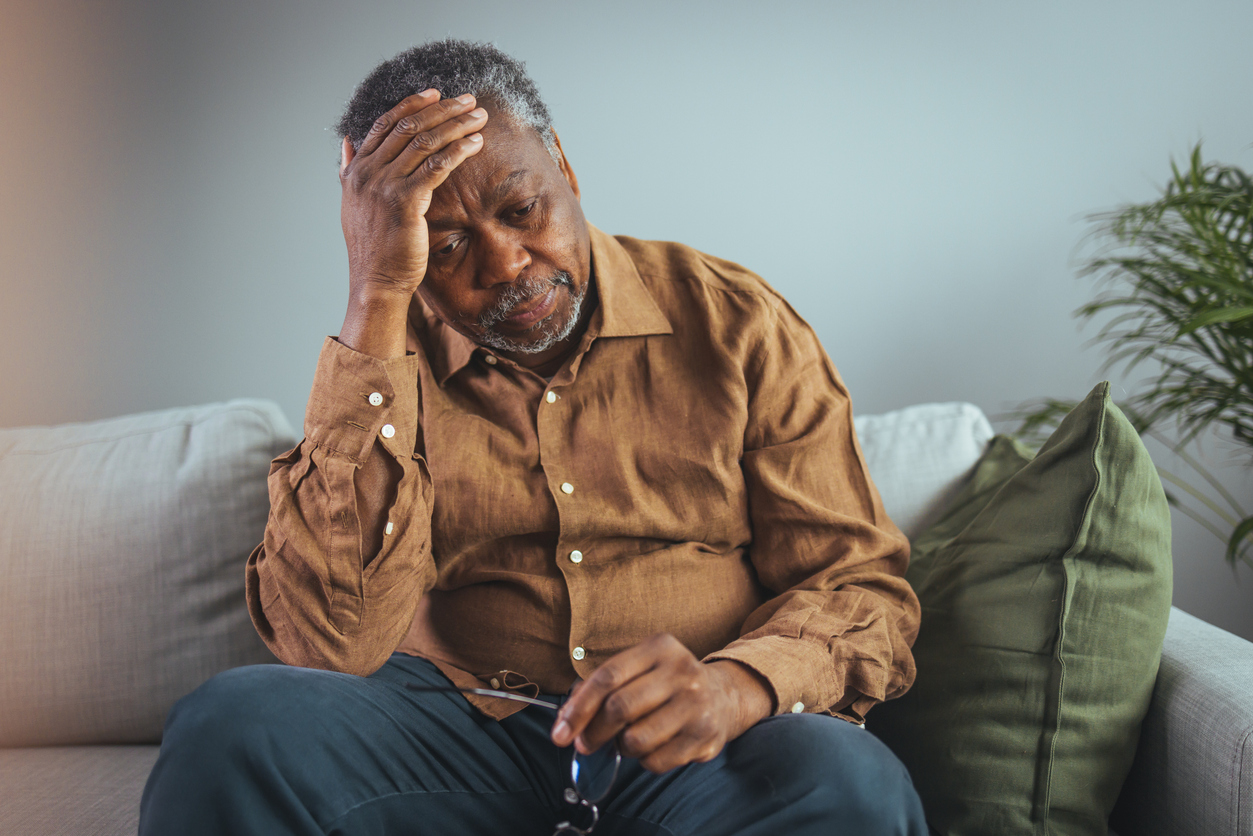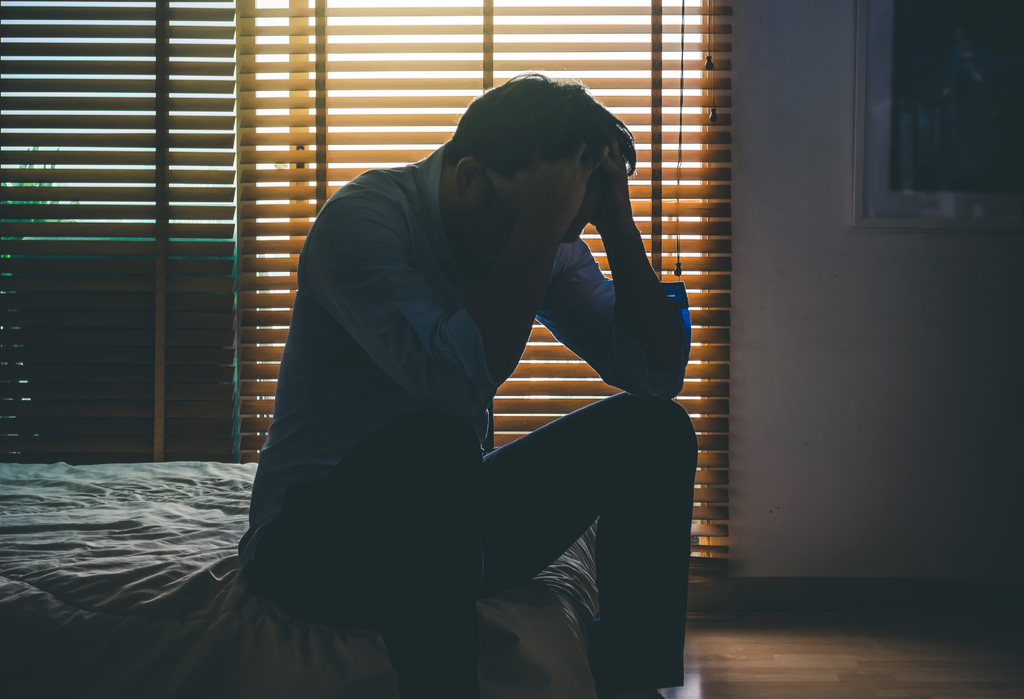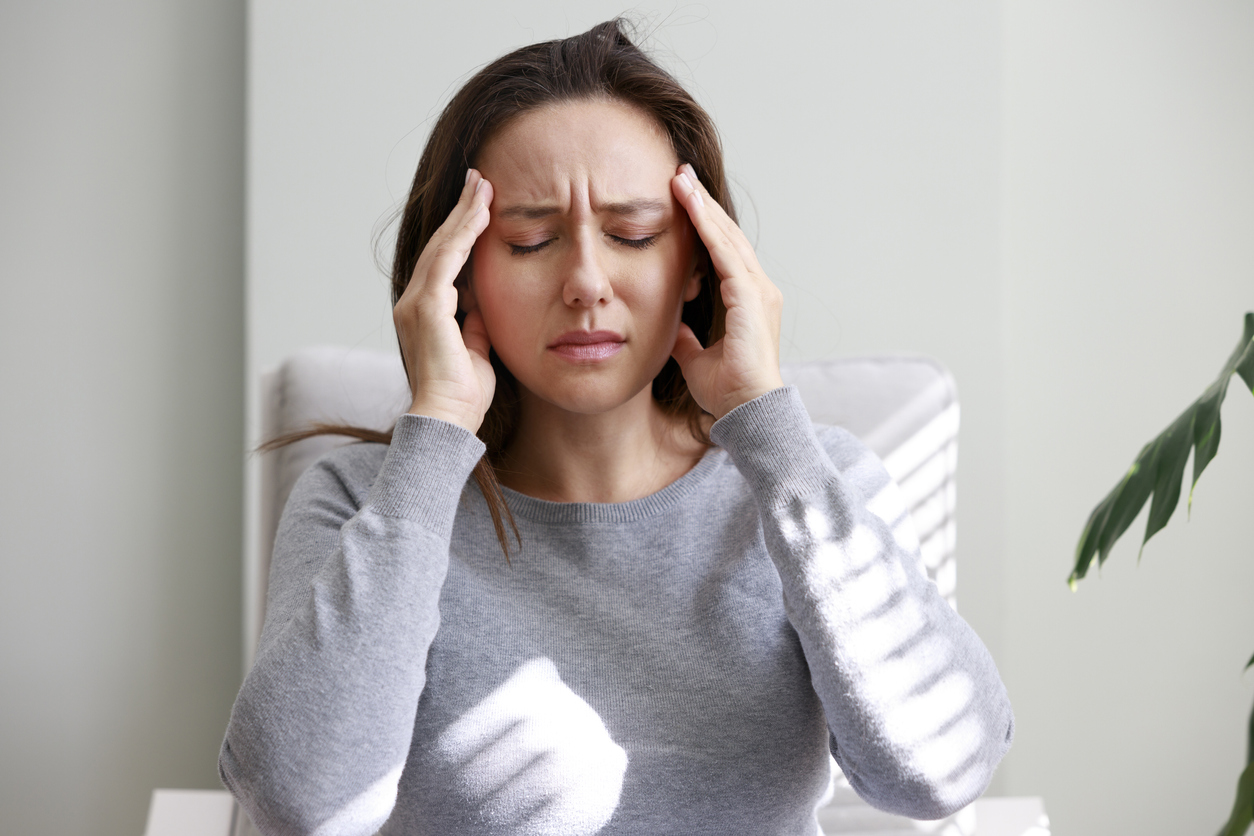What Happens to Your Body If You Stop Taking Antidepressants Cold Turkey
One adverse effect could be life-threatening, experts warn.

Used to treat clinical depression—and in some cases obsessive compulsive disorder, generalized anxiety disorder, and post-traumatic stress disorder (PTSD)—antidepressants are one of the most popular medications on the U.S. market. In fact, antidepressants were the third most commonly prescribed drugs among Americans of all ages, and the most commonly prescribed drug among Americans between the ages of 18 and 44, according to a 2011 report by the Centers for Disease Control and Prevention (CDC).
While some people who take antidepressants plan to take them indefinitely, others choose to discontinue their use as their symptoms improve. However, experts warn that doing so abruptly can come with adverse effects, sometimes known as antidepressant withdrawal syndrome.
"The severity and risks of these effects can vary depending on factors such as the type of antidepressant, the duration of use, age, overall health, and psychiatric history," says Taryn Fernandes, MD, a supervising physician at MEDvidi who spoke with Best Life about the dangers of stopping the drug too quickly. Read on to learn what happens to your body when you stop taking your antidepressants cold turkey, and why you should always talk to your doctor before making a change.
READ THIS NEXT: 5 Common OTC Medications Pharmacists Wish You'd Stop Taking.
You may experience rebound depression.

As symptoms of depression dissipate, some people taking antidepressants may feel that they no longer need their medication. However, in many cases, the brain comes to rely on these drugs to function properly, and discontinuing them can cause the patient's depressive state to quickly return or even worsen. "Relapsing or worsening of depressive or anxiety symptoms, potentially after discontinuing antidepressant treatment, is called rebound depression," explains Fernandes. She adds that these symptoms typically occur within two to three weeks of stopping your medication.
As it turns out, rebound depression is surprisingly common among those who stop taking their meds. "Almost 50 to 85 percent of patients may experience rebound depression at least once after discontinuing treatment, with the risk increasing as the treatment duration lengthens," the physician tells Best Life. "Careful monitoring and gradual tapering of medication can avoid the chances of relapse," says Fernandes.
READ THIS NEXT: I'm a Pharmacist, and This Is the Pain Reliever I Recommend.
You may develop new signs of psychological distress.

In addition to experiencing rebound depression, you may also develop new signs of psychological distress or hyperarousal. These commonly include irritability, anxiety, agitation, aggression, mania, and insomnia, says Fernandes.
"The duration and intensity of these symptoms depend on various individual factors including the type of medication, dosage, and treatment duration," the physician explains. "Research indicates shorter half-life antidepressants, such as paroxetine and venlafaxine, are more likely to cause withdrawal symptoms compared to longer-acting agents like citalopram and fluoxetine," she adds, citing a study published in the American Journal of Psychiatry.
You may have suicidal thoughts.

Those who stop their antidepressants cold turkey may also be at higher risk of self-harm, Fernandes points out. "Abruptly discontinuing antidepressants may increase the risk of suicidal thoughts and behaviors," she says, emphasizing that "the highest risk of such symptoms occurs during periods of initiation, dosage changes, and discontinuation of treatment."
Making a monitoring plan that includes your doctor or mental health professional, as well as your inner circle of support, can help minimize the risk of suicide or self harm. If you are experiencing suicidal thoughts, dial 988 for free and confidential, 24-hour support from the National Suicide Prevention Lifeline.
You may develop flu-like symptoms.

Ceasing to take your antidepressants overnight, you may also have a range of flu-like symptoms to contend with. "These may include headache, muscle aches, lethargy, sweating, diarrhea, fatigue, chills, and feverishness," says Fernandes. A 2017 study published in the Canadian Medical Association Journal (CMAJ) adds two more surprising symptoms to that list: balance problems such as light-headedness, dizziness, or vertigo, and sensory disturbances such as a burning or tingling sensation.
Fernandes notes that these symptoms will typically occur within the first few days of stopping an antidepressant medication and can last for several days to a few weeks. "Patients should be reassured that symptoms are reversible, not life-threatening, and usually self-limiting," the study authors add.
For more health news sent directly to your inbox, sign up for our daily newsletter.
Here's how to stop taking your antidepressants safely.

If you and your doctor are in agreement that getting off of antidepressants is the right choice for you, there may be several ways to alleviate adverse effects, including tapering off your dosage, or switching to another medication type as part of your transition. Continuing depression-focused psychotherapy, especially cognitive behavioral therapy (CBT) can also help ease the transition, says the Practice Guideline for the Treatment of Patients With Major Depressive Disorders.
Additionally, there are several lifestyle changes you should adopt while weaning yourself from antidepressants, according to the Practice Guideline, which is published by the American Psychiatric Association (APA). These include the "general promotion of healthy behaviors such as exercise, good sleep hygiene, good nutrition, and decreased use of tobacco, alcohol, and other potentially deleterious substances."
By coming up with a plan together with your medical team, and by communicating openly about the side effects you may be experiencing, you can help minimize your risk of serious adverse effects.
Best Life offers the most up-to-date information from top experts, new research, and health agencies, but our content is not meant to be a substitute for professional guidance. When it comes to the medication you're taking or any other health questions you have, always consult your healthcare provider directly.





















